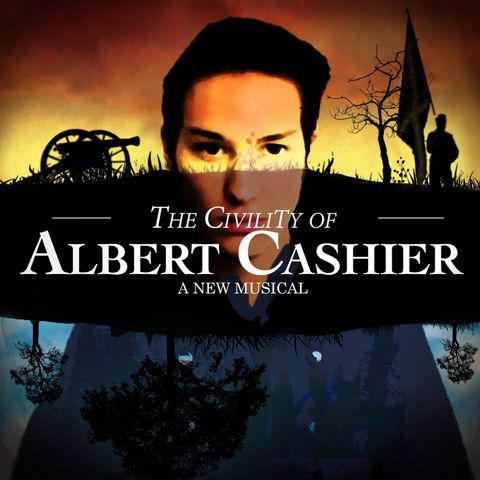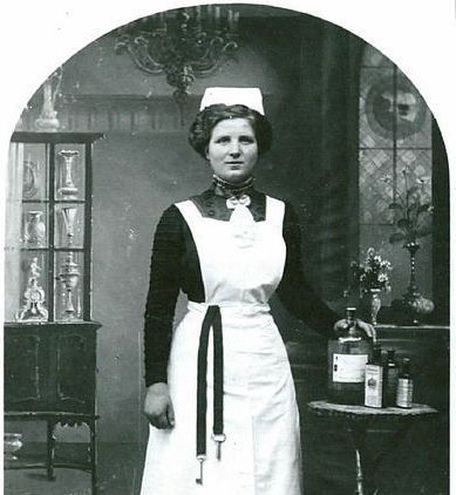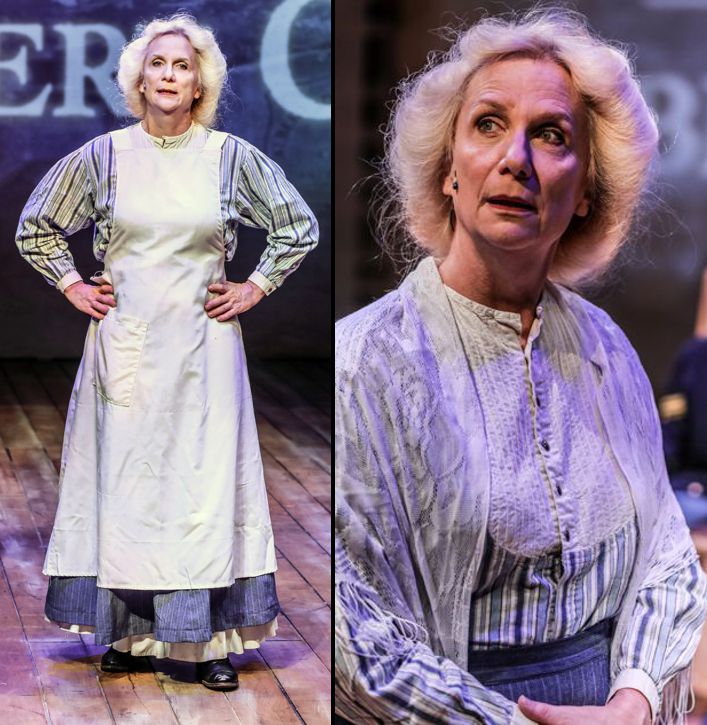|
Previewed: Aug 31, Sept 1, 2, 3, 5 Press Opening: Sept 6 My Closing was: Oct. 15 (extended to Oct 22) Venue: The Thrust space, at Stage 773 Website: http://www.albertcashierthemusical.com/ This production marked two firsts for me, post-transition: my first cisgender female, and first musical part. Aside from an understudy assignment at Chicago Shakespeare, Nurse Smith was my only acting job for 2017. And she was a real handful. This run was the result of many workshops, the first of which I played in summer 2016 at Victory Garden's, with subsequent rewrites and readings in Los Angeles, and then this summer in Chicago, not long before beginning rehearsal. A number of songs have been written and discarded, while the book underwent a few tweaks here and there. This initial full-mounting on The Thrust stage, with audience on three sides, was another stage of development but also a showcase for potential producers to watch, listen and consider investment in a larger, Equity production at some future date. This was my first experience with "Indie" theatre. While the show was loosely affiliated with my company, Pride Films and Plays, it essentially functioned as an independent entity, not drawing on the resources of any standing Chicago theatre company, and disappearing with the final performance. Background "The Civility of Albert Cashier" unfolds in two contrasting timelines: flashbacks set during the 1860s American Civil War, with a "present tense" story set in an early 20th century Illinois hospital (and later, a mental hospital). Our protagonist Albert Cashier lives simultaneously in both, portrayed by two different actors. Nurse Smith, supervising care for "Old Albert" has both feet firmly in the 1910s, though nurtured in a thoroughly Victorian upbringing. Since her actions involve the outing, humiliation and eventual demise of Albert, Nurse Smith was also saddled with the role of Villainess. Nurse Ratchet in a Gibson Girl 'do. At least, that's the impression audiences were largely left with, particularly early in the run. Undeniably, Nurse Smith functions as a humorless Keeper of the Norms (gender and otherwise) for society: where gender is always dependent on genitals, so whatever you were born with, that's what you are, end of story. In her worldview, "civil" people do not buck the system but listen to their betters, and conform. The concept of transgender, had it even existed then, would be anathema to her. As a health professional, she clearly thinks Albert, being born female but living his entire life as a male, is either a con artist or mentally disturbed -- or both. Other caregivers (including his physician) take a more sympathetic attitude towards Albert's gender situation. Once his "deception" is accidentally and dramatically unmasked by Nurse Smith, she takes the Tough Love approach, and undertakes to school Jennie (Albert's birth name) in the ways of being female. An ambitious, well-educated woman herself, Nurse Smith lectures Albert in the necessity of appearing and behaving feminine, when to step aside for men, and otherwise bowing to all rules keeping women second-class citizens. Albert, besides being most comfortable in the guise and manner of a man, has enjoyed a lifetime of male-only privileges -- holding a bank account, voting, serving in the military, and so forth -- and does not take well to the prospect of becoming a corseted, quiet, and conforming old lady. The second act revolves around this conflict between patient and nurse: How to be a Woman. You might say their first act conflict focuses on How to be a Man, at least where basics like hygiene and basic manners are concerned. As artists with a modern (and progressive) lens we of course are inclined to believe Albert was transgender, with an innate biological and psychological need to NOT live as the gender suggested by his female anatomy. Most audience members agreed with this perspective, and sympathized with Albert's difficulties as he tried to live his truth on the battlefield and then, nearly 50 years later, as a virtual prisoner of the American medical establishment. And all of us, on stage and off, experience this story within one larger framework: namely, that most Americans still regard gender identity as "what you're born with" physically, and have great difficulty accepting those of us who cannot live that way. We all know that outside the liberal bubble of our Chicago arts community, little has changed since Albert's era especially under our current, dangerously retrogressive government. Why a Cis Female? Nurse Smith is the only cisgender (non-trans) woman in the story. Over the course of our workshops and private discussions I urged the creative team to make good use of this, using her to explore not just transgender identity but broader gender roles. In other words, what it was like for men and women to abide by gender norms back then, and how the prescribed behaviors society demands of its citizens, then and now, are often unhealthy and unrealistic for everyone, cisgender or not. Nurse Smith for example is constantly frustrated by the patriarchy's supremacy -- a doctor trumping her nurse's orders, her male patients like Albert (before his outing) able to better play the system, and so forth. But as she daily invests herself in this world, sacrificing a great deal of her dignity, and sense of self, she perversely prides herself in being able to do so, to abide by social norms or "learn the dance" as she puts it in the number "Woman to Woman". She is no feminist, but an upholder of this man's world, as indeed many survivors are regardless of how much a system abuses them. Nurse Smith is but one example of an undeniable fact: women reinforce gender roles just as much as men do, even though those roles end up cutting many women off at the knees. What redeems Nurse Smith in my opinion is that, by the final scene, Albert's distress is so pronounced, even she realizes her mission-to-conform may be a futile and probably even cruel one. That's the arc I arrived at eventually. The performances of record (opening night and other early shows) displayed no moments of self-awareness or irony with Nurse Smith behaving more like an angry fishwife, perpetually frustrated and determined to take it all out on poor Albert. This was not an interpretation I felt happy with, and thankfully my fellow artists accommodated adjustments I made over the run to humanize my part, and better dramatize her own inner conflict. This struggle is not unusual for actors that "create" roles, performing in world premieres where no prior road map for their part yet exists. Such roles are all new territory, and sometimes the writer and director are just as lost as the actor. It would have been nice to arrive at my destination sooner, and get better reviews, but I kept pushing and expanding the part instead of putting it in cruise after opening night, and believe some greater depths of the role were eventually plumbed. Comments are closed.
|



